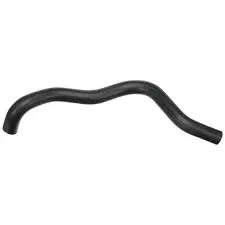Understanding the Benefits and Uses of Flex Fuel Lines in Vehicles
डिस . 04, 2024 16:01 Back to list
Understanding the Benefits and Uses of Flex Fuel Lines in Vehicles
Understanding Flex Fuel Lines A Guide to Enhanced Automotive Performance
In the ever-evolving world of automotive technology, the pursuit of efficiency and performance has led to the development of flex fuel systems. These systems allow vehicles to operate on a variety of fuel types, including traditional gasoline and alternative fuels like ethanol. At the heart of these systems is a crucial component the flex fuel line. This article delves into the significance of flex fuel lines, their benefits, and considerations for vehicle owners.
What are Flex Fuel Lines?
Flex fuel lines are specialized fuel delivery systems designed to accommodate different types of fuel blends. Unlike traditional fuel lines, which are optimized for regular gasoline, flex fuel lines are constructed from materials that can withstand the chemical properties of ethanol and other alternative fuels. Ethanol, for instance, is more corrosive than gasoline, which means that using standard fuel lines could lead to degradation and leaks over time.
The construction of flex fuel lines typically uses high-quality polymers and elastomers that resist ethanol's corrosive effects. These materials ensure that the fuel line maintains its integrity and performance, reducing the risk of failure and enhancing the vehicle's overall reliability.
Advantages of Flex Fuel Lines
1. Compatibility with Multiple Fuels One of the most significant advantages of flex fuel lines is their ability to support different fuel types. This flexibility allows vehicle owners to take advantage of fluctuating fuel prices and choose alternative fuels that may be more environmentally friendly, like E85, a blend of 85% ethanol and 15% gasoline.
2. Environmental Benefits Ethanol is a renewable resource, and its use can significantly reduce carbon emissions compared to traditional gasoline. By enabling the use of ethanol and other biofuels, flex fuel systems contribute to a greener automotive industry, helping to combat climate change and reduce the automobile’s carbon footprint.
flex fuel line

3. Increased Performance Some drivers report improved performance and horsepower when using ethanol blends due to ethanol’s higher octane rating compared to regular gasoline. This can result in a more efficient combustion process, leading to increased engine power and responsiveness.
4. Economic Advantages In certain regions, ethanol blends can be less expensive than standard gasoline, providing a cost-effective alternative at the pump. Flex fuel vehicles (FFVs) can take advantage of these price disparities, leading to savings for consumers.
Considerations for Vehicle Owners
While flex fuel lines offer numerous benefits, there are some considerations that vehicle owners should keep in mind. First, it's essential to ensure that your vehicle is indeed compatible with flex fuel systems. Not all vehicles equipped with flex fuel lines are designed to run on high ethanol blends. Therefore, it’s crucial to check the owner’s manual or consult with a dealership.
Additionally, regular maintenance is vital. While flex fuel lines are designed to handle the corrosive properties of ethanol, other components in the fuel system, such as filters and pumps, must also be compatible. Routine inspections can ensure that the entire fuel system operates efficiently and safely.
Lastly, vehicle owners should be aware of how climate and usage affect fuel choice. For instance, in colder climates, high ethanol blends can lead to starting issues due to ethanol's propensity to absorb moisture. Using lower ethanol blends in such conditions may prevent potential fuel system problems.
Conclusion
Flex fuel lines represent a significant advancement in automotive technology, paving the way for vehicles to operate on a diverse array of fuels. Their ability to provide compatibility, environmental benefits, and potential cost savings make them an attractive option for modern drivers. As the demand for sustainable fuel solutions grows, understanding the role of flex fuel lines becomes paramount for anyone looking to enhance their vehicle's performance and reduce their environmental impact. Whether you're a car enthusiast or an everyday driver, embracing this technology is a step towards a more sustainable automotive future.
